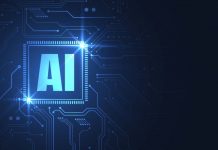This article has been written by Nishant Tyagi pursuing MBA with a Specialisation in Data Protection and Privacy Management (From Swiss School of Management). The article is edited by Oishika Banerji (Team Lawsikho).
This article has been published by Sneha Mahawar.
Table of Contents
Introduction
Artificial intelligence (AI) has become an essential part of our daily lives, changing the way we work, communicate, and even entertain ourselves. From Siri and Alexa to personalised recommendations on Netflix, AI can be said to be everywhere. However, as AI becomes more ubiquitous, it’s crucial to consider the impact it has on our privacy. AI algorithms are trained on vast amounts of personal data, which can be used to make predictions and decisions about us. This puts our privacy at risk in ways that were previously unimaginable.
AI and data privacy are complex and interrelated issues with both potential benefits and drawbacks. On one hand, AI has the potential to greatly enhance various industries, improve decision-making, and streamline processes. On the other hand, AI systems process and analyse large amounts of personal data, which can lead to privacy concerns if the data is misused or not properly protected.
Data privacy refers to the protection of personal information and the rights of individuals to control how their personal information is collected, used, and shared. In the AI-driven world, data privacy is of utmost importance as AI systems process and analyse vast amounts of personal data, making it possible to uncover previously unknown patterns and insights. However, this also means that personal information is at increased risk of being misused or mishandled. Data privacy laws like the European Union’s General Data Protection Regulation (GDPR) and the California Consumer Privacy Act (CCPA) aims to give individuals control over their personal data and to ensure that personal information is properly protected.
In this article, we’ll explore the various privacy concerns associated with AI, including data collection, data sharing, and data protection. We’ll also examine the current state of privacy laws and regulations, and the role of companies, governments, and individuals in protecting privacy in the AI-driven world.
Why should privacy be protected in AI influenced world
Privacy is significant when it comes to protecting people from harmful surveillance and disclosure of confidential information in public platforms. Privacy is considered to be one of the prime values of a democratic society and it is ideal to note that the prohibition of safe and equitable data collection can be in conflict with social goals that are considered to be equally valuable. While the difficulty of choosing between competing values such as freedom of equality, freedom of expression, safety, access and health and technological development, have always been faced by us, it is the anonymization of data that has helped in securing a balance between public welfare and monopolised interests. The need for openly acknowledging the art of balancing privacy with that of data collection stands indispensable in today’s changing times. But, just like too little privacy is a detriment, too much privacy can be responsible for undermining the ways in which information can be put to use for the purpose of progressive change. While two aspects of privacy, namely, data collection and data protection, has been discussed hereunder, it is necessary to state that both these aspects walk along with pros and cons in relation to privacy.
Data collection and sharing
The first and most significant privacy concern associated with AI is the collection and sharing of personal data. AI algorithms require vast amounts of data to train and improve, which can come from a variety of sources, including social media, online shopping, and even personal devices like smartphones and smart home devices. This data can be used to create detailed profiles of individuals, which can be used to target advertisements, make predictions about future behaviour, and even influence political opinions. The problem with data collection and sharing is that individuals often don’t know what data is being collected, who is collecting it, and how it’s being used. For example, many apps and websites collect data about your location, browsing history, and search queries, which can be used to build a detailed profile of your interests, habits, and even personality. This data can then be shared with third-party companies, who can use it for their own purposes, such as targeted advertising or market research.
In 2019, California had enacted a three-year moratorium on the usage of facial recognition technology in cameras belonging to police authorities. The two primary concerns surrounding this technology were:
- The technology lacked in recognizing the faces of minority groups thereby leading, for example, to false searches and arrests, which could be detrimental towards human rights, and
- The technology in general had accelerated population surveillance thereby raising privacy concerns.
The contemporary proposals of limitation on usage of the technology has a direct impact on stalling proposed improvements thereby hindering safer integration to the detriment of vulnerable groups. The reason for mentioning this example under our discussed header is because data collection and sharing cannot be presumed to be powered by negative traits as outright ban of the same can make us ignore that surveillance cameras have benefits. They can aid in safeguarding victims of domestic violence, harassment, and create safety networks for females thereby reducing scenarios of misuse of power vested in law enforcement.
Facial recognition technology can help in curbing human trafficking thereby also aiding in locating missing people, particularly missing children. This can be done by pairing the technology with AI, creating maturation images in order to bridge the missing years. Disability communities and individuals with genetic disorders can also benefit from such technology as the same can assist them to do activities like fully developed and healthy individuals. While restricting technological usage is not a solution, making room for policies alongside enforcement of safe conditions and restrictions for their functioning, is a must.
Data protection
The second privacy concern associated with AI is data protection. Personal data is a valuable asset, and it’s often stored and processed by companies that have little regard for privacy. In many cases, this data is not properly secured, which can result in data breaches and the theft of personal information.
For example, in 2017, Equifax, a major credit reporting agency, experienced a data breach that exposed the personal information of over 140 million individuals, including their Social Security numbers, addresses, and birth dates. This type of data breach can have severe consequences, including identity theft, financial fraud, and loss of privacy.
In order to protect personal data, it’s important to have strong data protection policies in place. This includes encryption, firewalls, and regular security audits. It’s also important to be aware of the types of data that are being collected and who is collecting it. By being informed and taking steps to protect personal data, individuals can minimise their risk of becoming victims of data breaches.
The importance of data privacy in the AI-driven world can be understood in the following ways:
- Protecting personal information: Data privacy laws aim to protect personal information from being misused, disclosed, or otherwise mishandled. This is particularly important in the AI-driven world where AI systems process vast amounts of personal data and have the potential to uncover previously unknown insights about individuals.
- Giving individuals control over their data: Data privacy laws give individuals the right to control how their personal information is collected, used, and shared. This means that individuals have the ability to say “no” to the collection of their data if they don’t feel comfortable with it.
- Promoting ethical AI practices: Data privacy laws encourage AI developers to consider privacy concerns and ethical implications of their AI systems. This can lead to the development of AI systems that respect individuals’ rights and protect personal information.
- Preventing bias and discrimination: Data privacy laws can help prevent AI systems from perpetuating existing biases and discrimination. This is because they encourage AI developers to consider the sources of the data they use to train their AI systems and to ensure that the data is not biassed.
Privacy laws and regulations
One of the major privacy concerns associated with AI is the current state of privacy laws and regulations. In many countries, privacy laws and regulations are outdated and ineffective, leaving individuals vulnerable to the negative consequences of AI.
For example, in the United States, the primary privacy law is the Electronic Communications Privacy Act (ECPA), which was enacted in 1986, long before the rise of AI. The ECPA provides limited protections for personal data, and it doesn’t address many of the privacy concerns associated with AI, such as data collection and data protection.
In the European Union, the General Data Protection Regulation (GDPR) was enacted in 2018, which provides individuals with greater control over their personal data. The GDPR requires companies to obtain explicit consent for the collection and processing of personal data, and it gives individuals the right to access, rectify, and erase their personal data. The GDPR also imposes significant fines for companies that violate privacy laws, which serves as a deterrent for companies that might otherwise disregard privacy concerns.
However, even with the GDPR in place, there are still privacy concerns associated with AI. For example, there are questions about the scope of the GDPR, such as how it applies to data that is processed outside of the European Union. There are also concerns about the ability of regulators to enforce the GDPR, as they often lack the resources and expertise to effectively monitor the activities of AI companies.
When we come to India, the area of privacy laws remains ambiguous as the internet has been filled with amalgamation of provisions belonging to different legislations such as Information Technology Act, 2000 and the Indian Contract Act, 1872. Although India is not behind in the race among countries for technological overpowering, it will be ideal to state that the legislators of this democratic nation have kept the hard work of framing specified statutes for the future. But, lack of realisation that AI is not the future but is the present have made India suffer several cyber crimes and attacks over the past decade.
Impact of AI on data privacy
The impact of AI on data privacy is a complex and multifaceted issue that has become increasingly relevant as AI systems continue to grow in prominence and usage. AI systems, which are designed to analyse and process large amounts of data, are inherently reliant on access to personal data in order to function effectively. This access to personal data poses several risks to data privacy, including the potential for privacy violations, the perpetuation of biases and discrimination, and the risk of data misuse.
One of the primary ways in which AI systems impact data privacy is through their reliance on personal data. In order to function effectively, AI systems require access to vast amounts of data, including personal data such as names, addresses, and other identifying information. This data is then analysed and processed by the AI system, which uses it to make decisions, predict outcomes, and identify patterns. The sheer scale of data that AI systems process, combined with the sensitive nature of the data involved, creates a significant risk to privacy. This risk is compounded by the fact that AI systems are capable of processing data at a speed that far outpaces human ability, making it difficult for individuals to keep up with the rapid pace of data processing and to understand how their personal data is being used.
Another major way in which AI impacts data privacy is through the potential perpetuation of biases and discrimination. AI systems are only as fair and impartial as the data they are trained on, and if that data contains biases or discriminatory patterns, the AI system will incorporate these biases into its decision-making processes. For example, if an AI system is trained on a dataset that is biassed towards certain races or genders, it is likely to perpetuate those biases in its predictions and decisions. This can lead to unequal treatment and can further entrench existing inequalities.
Finally, AI systems also pose a risk to data privacy through the potential for data misuse. AI systems are designed to process and analyse large amounts of data, and this capability also makes it possible for these systems to misuse personal data. For example, an AI system that is designed to analyse financial data could use personal data to make decisions about loan applications, credit ratings, or insurance policies. If this personal data is not properly secured or is used in an unethical manner, it could result in privacy violations, including the unauthorised release of sensitive information.
The impact of AI on data privacy is a growing concern for individuals, organisations, and governments around the world. As AI systems continue to become more prevalent, it is important for data privacy laws and regulations to evolve in order to keep pace with the changing landscape. This may include updating existing laws and regulations, creating new ones, and developing international standards for the protection of personal data in the AI era.
In conclusion, the impact of AI on data privacy is a complex and multifaceted issue that requires careful consideration and a proactive approach from individuals, organisations, and governments. As AI systems continue to grow in prominence and usage, it is important to remain vigilant and to take steps to protect personal data from privacy violations, biases, and misuse. By doing so, we can help ensure that the benefits of AI are enjoyed by all, while minimising the risks to data privacy that come with this powerful technology.
The role of companies, governments, and individuals
The final privacy concern associated with AI is the role of companies, governments, and individuals in protecting privacy. Each of these groups has a role to play in ensuring that privacy is protected in the AI-driven world.
Companies have a responsibility to be transparent about their data collection practices and to secure personal data. They should also allow individuals to access, rectify, and erase their personal data, and they should only use personal data for the purpose for which it was collected. Companies should also invest in the development of privacy-enhancing technologies, such as homomorphic encryption, which allows data to be processed without being decrypted.
Governments have a responsibility to create and enforce privacy laws and regulations that are effective and that keep pace with the rapid advancements in AI. Governments should also invest in the development of privacy-enhancing technologies and provide resources to regulators so that they can effectively enforce privacy laws.
Individuals have a responsibility to be informed about the types of data that are being collected and who is collecting it, and to take steps to protect their personal data, such as using encryption and regularly changing passwords. Individuals should also advocate for stronger privacy laws and regulations and hold companies and governments accountable for protecting privacy.
Conclusion
In conclusion, it is necessary to state that, privacy is a major concern in the AI-driven world, and it requires a collaborative effort from companies, governments, and individuals to ensure that privacy is protected. Companies must be transparent about their data collection practices and secure personal data, governments must create and enforce effective privacy laws and regulations, and individuals must be informed and take steps to protect their personal data. Only by working together can we ensure that privacy is protected in the AI-driven world.
References
- https://time.com/6224484/data-privacy-problem/
- https://www.weforum.org/agenda/2022/03/designing-artificial-intelligence-for-privacy/
- https://www.boozallen.com/s/solution/four-ways-to-preserve-privacy-in-ai.html
Students of Lawsikho courses regularly produce writing assignments and work on practical exercises as a part of their coursework and develop themselves in real-life practical skills.
LawSikho has created a telegram group for exchanging legal knowledge, referrals, and various opportunities. You can click on this link and join:
Follow us on Instagram and subscribe to our YouTube channel for more amazing legal content.
 Serato DJ Crack 2025Serato DJ PRO Crack
Serato DJ Crack 2025Serato DJ PRO Crack













 Allow notifications
Allow notifications


